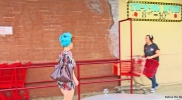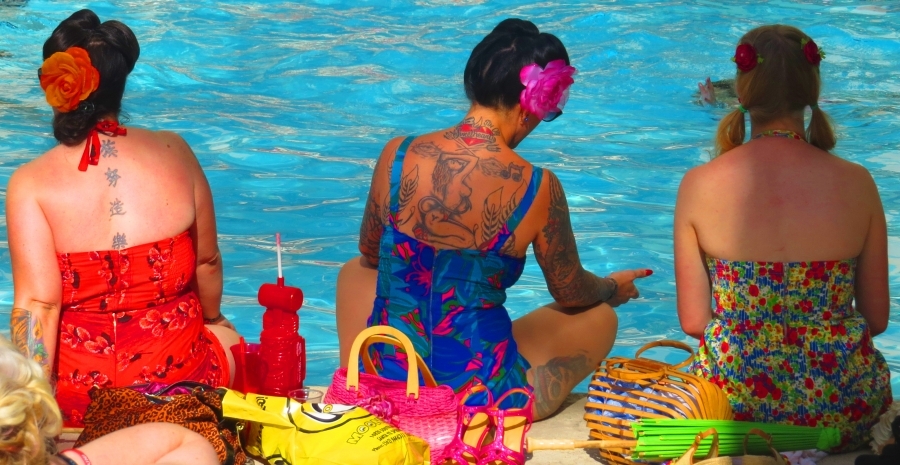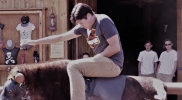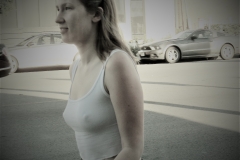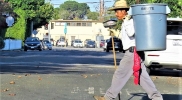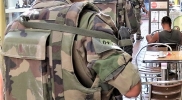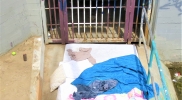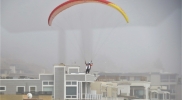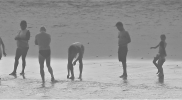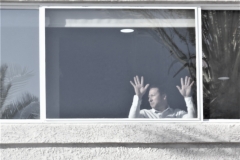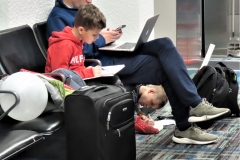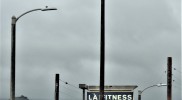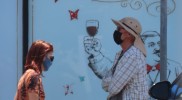|
|
Best Trivia - Exercise
|
Favorite Trivia – DISCRIMINATION
|
| “The other day there was a sign in some kind of bookshop on Beridarebansgatan [in Stockholm]: ‘No admittance to Jews and half-Jews.’ A crowd gathered outside and there was a terrible fuss; now the OA [the over-governor, the highest city official] has ordered the owner to put the sign where it can’t be seen from the street.” [November 5, 1941]
Astrid Lindgren, War Diaries: 1939-1945
|
| “My grandmother’s greatest gift was tolerance. Now, in the old days, Indians used to be forgiving of any kind of eccentricity. In fact, weird people were often celebrated. Epileptics were often shamans because people just assumed God gave seizure-visions to the lucky ones. Gay people were seen as magical, too. I mean, like in many cultures, men were viewed as warriors and women were viewed as caregivers. But gay people, being both male and female, were seen as both warriors and caregivers.”
Sherman Alexie – The True Diary of a Part-time Indian
|
| “Prejudice saves us a painful trouble, the trouble of thinking.”
Rabbi Alfred Bettleheim
|
| “Press cutting from Dagens Nyheter: ‘All Jews in Germany forced to wear yellow star [of David].’ [September 7, 1941]
Astrid Lindgren, War Diaries: 1939-1945
|
| “A part of me resents the light-colored contacts I wear. With brown eyes, I’m Arab. With gray eyes, I’m exotic, racially ambiguous. With my contacts in, people ask me where I’m from out of admiration. Without them, people ask me where I’m from because I look too different to possibly be from here.”
Amani Al-Khatahtbeh (Muslim Girl)
|
| “I wish my fellow warriors hadn’t lost the first four or five years bogged down by homophobia and denial. When Larry Kramer tells Mathilde Krim in Interview about the closeted gay man at the National Institutes of Health who buried the AIDS data for two years, that’s when I understand how doomed we were before we ever knew.”
Paul Monette – Borrowed Time: An AIDS Memoir
|
| “The common stock of intellectual enjoyment should not be difficult of access because of the economic position of him who would approach it.”
Jane Addams
|
| “With every campaign event, every article published, every sign we might be gaining ground, we became slightly more exposed, more open to attack… Barack’s safety was something I didn’t want to think about, let alone discuss. So many of us had been brought up with assassinations on the news at night. The Kennedys had been shot. Martin Luther King Jr. had been shot. Ronald Reagan had been shot. John Lennon had been shot. If you drew too much heat, you bore a certain risk. But then again, Barack was a black man. The risk, for him, was nothing new. ‘He could get shot just going to the gas station,’ I sometimes tried to remind people when they brought it up.”
Michelle Obama – Becoming
|
| “If somebody told me I had only one hour to live, I’d spend it choking a white man. I’d do it nice and slow.”
Miles Davis
|
| “I believe there is only one race, the human race.”
Rosa Parks
|
| “Talking about her experience as the first black woman elected to Congress [in A Wealth of Wisdom], [Shirley] Chisholm mentioned a congressman who sat in an aisle seat on the House floor. Each day, when Chisholm showed up for work, the gentleman—who sat in front of her—would start coughing as soon as he saw her. Chisholm, concerned about his health, asked a colleague if the congressman was tubercular, and the colleague delivered some startling information. It seemed that, as soon as Chisholm walked by the coughing congressman each day, the congressman had developed a habit of pulling out a handkerchief and then spitting in it, as if spitting in Chisholm’s face.
“So Chisholm, fired up, decided to teach the man a lesson. She showed up at the House of Representatives the next day wearing a sweater with big pockets, in one of which she’d placed a man’s handkerchief. The congressman started coughing, and Chisholm said to herself, Uh-huh, baby, I’m going to fix you today. At the moment that he pulled out his handkerchief, Chisholm pulled out her own. Then she spit in it and threw it in the man’s face. ‘Beat you to it today,’ she told him.”
Henry Alford– How To Live: A Search for Wisdom from Old People
|
|
“The Queen is most anxious to enlist everyone who can speak or write to join in checking this mad, wicked folly of ‘Women’s Rights,’ with all its attendant horrors, on which her poor feeble sex is bent, forgetting every sense of womanly feeling and propriety. It is a subject which makes the Queen so furious that she cannot contain herself. God created men and women different—then let them remain each in their own position.”
Queen Victoria, memorandum on Women’s Suffrage, 1870 (Christopher Morley’s Book of Days for 1931 [July 7])
|
| “Anatole Broyard, who was the daily book critic for The New York Times in the 1970s and 1980s… passed himself off as white—this practice is referred to as passablanc—all his adult life. He had black hair, olive skin, and Gallic features. Although he worked in a field that presumably wouldn’t have discriminated against him—and indeed, might even have promoted him on the basis of his minority status—Broyard didn’t want to be labeled a ‘Negro’ writer and, at some level, realized that it’s easier to be white than black in America. But, just before his death from cancer in 1990, Broyard labored to tell his two children his secret. (His wife had to be the one to say, ‘Your father is part black,’ when her husband was unable to deliver the goods.) His story was later recounted in nonfiction books by his daughter, Bliss, and historian Henry Louis Gates, as well as being the basis for the Philip Roth novel The Human Stain.”
Henry Alford– How To Live: A Search for Wisdom from Old People
|
| “Michael Roberts has suddenly become over tense and fed up with being in NYC and told me he may leave at Christmas to go back to London. Taxis often won’t stop for him. He was shown the service entrance when he went to a fancy apartment recently, which understandably really pissed him off.” [August 27, 1984]
Tina Brown – The Vanity Fair Diaries: 1983-1992
|
| “After knowing him I saw the force of the proverb ‘Trust a snake before a Jew and a Jew before a Greek, but don’t trust an Armenian.'”
George Orwell – Down and Out in Paris and London
|
| “The former schoolteacher Paz Erráazuriz had only recently begun taking pictures when the right-wing army chief Augusto Pinochet seized power in Chile in September 1973, following a bloody military coup in which Salvador Allende, the country’s socialist president, was ousted… The sequence of photographs titled La manzana de Adan, or ‘Adam’s Apple’ began when Erráazuriz befriended a clan of male cross-dressers… the relationship between Erráazuriz and the group began with two transvestite brothers named Pilar and Evelyn and their mother, Mercedes…. Having suffered in secrecy and silence for so long, the men came to welcome the acknowledgement that camera and pen now offered them, unfurling crocus-like in the morning sun to speak willingly of the beatings, verbal harassment, torture and killing that had marked their lives since Pinochet had come to power.
“‘We were in Valparaíso when the coup occurred,’ remembered Pilar. ‘They took all of us to a ship moored in the port. They took us there blindfolded, in a van. For six days I was left there, piled up with others, in the hold. The first thing the soldiers did was cut our hair; they pulled it by the roots and afterwards they pissed on us. They kept hitting us. They hung Tamara and Tila with a rope and made them spin turning them round and round. They threatened to throw us overboard. There were some thirty of us homosexuals on board. We were released one by one. They killed several of us during the coup. They killed Mariliz who was really pretty, just like Liz Taylor. This happened over Christmas. Her body was found in the Mapocho river, full of bayonet holes… Evelyn committed suicide, Leyla was killed by the police. Most others in the group fell victim to AIDS. It was so early in the epidemic, Erráazuriz later recalled, that they died without knowing what it was that ravaged them.”
Lucy Davies – Another Kind of Life: Photography on the Margins (ed. by Alona Pardo)
|
| “I asked my sister to tell me the situation in detail as soon as possible if she goes to Santa Anita. Are we going to be confined in a horse track? Until today, we had gone there as a family on a number of occasions to entertain visitors from Japan… “There may be many among the white people who say, ‘So what? Even horses, there are Arabian horses worth a hundred and fifty thousand dollars which is a lot more than you worthless Japanese.’ But we are human beings. Humans are the lord of all the primates. Just because we became enemy nationals, we didn’t drop in rank to an animal. We have the pride of possessing mystical blood and spiritual depth of the East. Who would have thought that war, war between Japan and America, a war that was planned in a world we had no knowledge of even in our dreams, would get us involved this deeply and cause us to suffer? Crime? Where should we look in ourselves to find our offense for which we must be treated like this?” [April 24, 1942]
Aoki Hisa (Dear Los Angeles: The City in Diaries and Letters: 1542 to 2018, ed. by David Kipen)
|
| “Not dead. Nor down with flu—as is half Los Angeles. But merely entangled in that unprofitable thing known as the show business—going out to Hollywood or Beverly Hills every morning and not getting back to the hotel until 12 or 1 or 2 o’clock at night—since those remote districts are from where I live just about like going from Harlem to Philadelphia—and in this charming democracy of ours there seems to be no place for Negroes to live in Hollywood even if they do work out there occasionally….”[December 17, 1940]
Langston Hughes, to his agent (Dear Los Angeles: The City in Diaries and Letters: 1542 to 2018, ed. by David Kipen)
|
| “Integration was the overarching topic bedeviling Virginia, and the nation. Some Virginia school systems closed public schools, and new private all-white schools blossomed, leaving black children without education. Arlington county was considerably more liberal than most parts of Virginia and schools stayed open. At W-L and other schools, there was tension in the air. Some students formed a Nazi party secretly meeting in school.”
Thomas DeBaggio – Losing My Mind: An Intimate Look at Life with Alzheimer’s
|
| “The only change in Peking and Shanghai was that in 1925 you saw white women everywhere. You never used to see them in oriental cities on the streets or in street cars. Everybody white was well off and had private rickshas. Now white women are begging. It’s the Russian refugees caused this, and made the white man’s prestige go down in the East.”
Maude Parrish – Nine Pounds of Luggage
|
| “They are Govern’d by the same laws as wee in Boston thr’out this whole colony of Connecticut… They generally lived very well and comfortable in their families. But too indulgent to their slaves: sufering too great familiarity from them, permitting them to sit at table and eat with them, (as they say to save time), and into the dish goes the black hoof as freely as the white hand…” [October 4, 1704]
The Journal of Madame Knight – Sarah Kemble Knight
|
| “When the United States decided that it could no longer keep the Japanese Americans in internment camps, they urged them not to get together or form organizations. Roosevelt even thought it would be a good idea if we scattered all the Japanese—a couple per county all through the United States.” Setsuko Nishi
Henry Alford– How To Live: A Search for Wisdom from Old People
|
| “One day in 1846, Thoreau walked from his cabin out near Walden Pond into Concord, Massachusetts, to pick up a shoe he had left for repair. There he encountered Sam Staples, Concord’s constable and tax collector. For the past six years Thoreau had refused to pay his poll tax as a protest against government’s support for slavery. Stapes had repeatedly warned Thoreau that sooner or later he would have to pay—Staples even offered to lend him the money—but this time Thoreau again refused. Staples had had enough, so he locked Thoreau up. Word of Thoreau’s incarceration spread quickly in the small town, and overnight someone paid his tax bill for him (it’s still not clear who). He was released the next morning.”
Geary – The World in a Phrase: A Brief History of the Aphorism
|

Comments are closed.
|
|






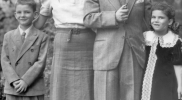
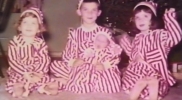

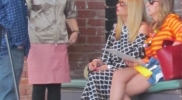
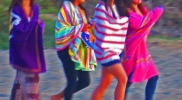

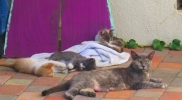
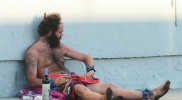
![[000015] [000015]](https://beforetheblog.com/wp-content/gallery/kids/thumbs/thumbs_000015.jpg)
